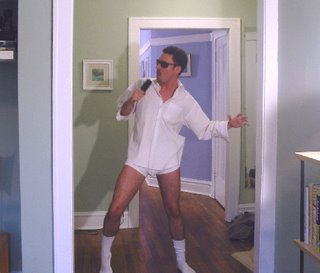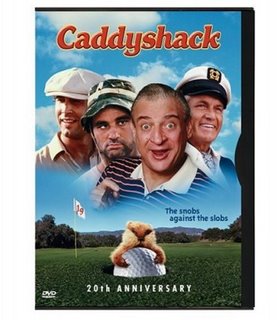 "Sometimes you just have to say.. 'What the fuck?'"
"Sometimes you just have to say.. 'What the fuck?'" Risky Business is a classic of the 80's decade that crafts a teenage hero for every kid feeling the pressure of grades, parents and their futures. Joel, played by Tom Cruise desperately wants the grades and SAT scores that will qualify him for Princeton University. His parents seem to be the only people that want that even more than Joel.
Mr. and Mrs. Goodsen have high expectations for their son, and they both run a very strict household. The scene in which both parents give him an endless briefing before Joel will be home alone for a few days reveals interesting camerawork. The camera points directly at his parents for a the duration of the scene. They give the details to the audience; it is as if the viewers get a first person perspective of Joel as his parents babble on. It further emphasizes the demand for Joel to be a responsible teenager. A relationship with the audience is established, and many teenagers can relate to Joel's situation.
The next few scenes show his relief upon his parents' departure. Joel is ecstatic, but does not do anything too rebellious. He dances around in his underwear to the tunes played on his fathers stereo and drinks whiskey with a TV dinner.
His friend convinces Joel to order a prostitute with the famous line, "so your folks are goin' outta town for a few days.. what the fuck? This friend is going to Harvard in the fall. At first, he calls the prostitute for Joel, who is extremely reluctant. The prostitute arrives and he is a large man in a dress. This prostitute gives him a number for a girl that "all the white boys on the lake want." He later calls this number, introducing himself as Ralph.
This film is so hilarious because of the character and the situation he gets himself into. He is in every way a "good kid," perhaps raised with such restrictions causing a desire to do anything rebellious and fun (he is easily influenced by piers.) Leave it to Joel to make one mistake that puts his entire future in jeopardy. He orders a prostitute, who is reluctant to leave the next morning. He is then robbed. Joel must search for her with his friend, and he is chased by "Guido, the killer pimp" soon after finding her. So many other problems occur when his parents are away. He is goated into taking out his father's Porsche, which rolls into Lake Michigan later in the evening. He misses his finals which drastically bring down his grade point average. And he has an interview with the dean of Princeton during his whorehouse fundraiser to replace the Porsche. The interview is so embarrassing and awkward, Joel shouts, "looks like the University of Illinois!" after the dean leaves.
Joel is transformed from the straight-laced adult his parents want him to be to the confident improviser that his future depends on. His grades and SAT scores are no where near Princeton's range, but Joel's radical ways lead to his acceptance into the University. It proves that taking risks and being wild can work to one's advantage, at least in Joel's case. This notion also defines the hero of the 80's teen. The entire theme is reproduced in "The Girl Next Door" (2004.)




